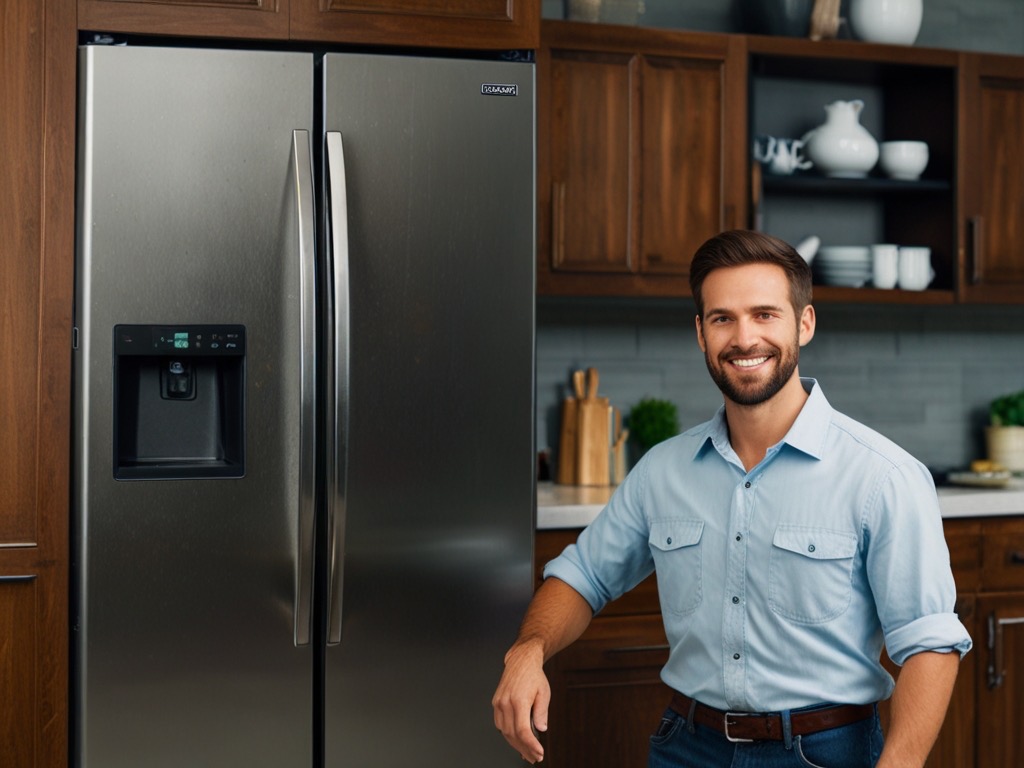In today’s fast-paced world, the need for efficient food preservation has never been more critical. With the growing demand for fresh produce and longer shelf life, adaptive cooling technologies have become a game-changer in the world of refrigeration. These technologies offer precise temperature and humidity control, ensuring that various types of food are stored under optimal conditions. This article explores the different adaptive cooling technologies available and how they help preserve different types of food, ultimately maintaining quality and reducing waste.
The Importance of Adaptive Cooling
Adaptive cooling technologies are designed to adjust to the specific needs of different types of food, providing tailored storage conditions. This not only extends the shelf life of food but also preserves its nutritional value, flavor, and texture. Traditional refrigeration systems often fail to provide the level of precision needed for optimal food preservation, leading to spoilage and waste.
Types of Adaptive Cooling Technologies
- Variable Temperature Zones:
Modern refrigerators come equipped with multiple temperature zones that can be individually controlled. This allows users to store different types of food at their ideal temperatures. For example, fresh fruits and vegetables can be stored at higher humidity and lower temperatures, while meats and dairy products require cooler, drier environments.
⠀
- Humidity Control Drawers:
These specialized drawers maintain optimal humidity levels to keep produce fresh. By controlling the moisture levels, these drawers prevent fruits and vegetables from wilting or becoming too dry, ensuring they remain crisp and flavorful.
⠀
- Rapid Cooling and Freezing:
Some refrigerators are equipped with rapid cooling and freezing functions that quickly bring food items to their desired temperatures. This is particularly useful for preserving the freshness of newly bought groceries or quickly cooling cooked food to prevent bacterial growth.
⠀
- Adaptive Defrost Technology:
Traditional defrost cycles in refrigerators can be inefficient and lead to temperature fluctuations that affect food quality. Adaptive defrost technology, on the other hand, monitors usage patterns and only defrosts when necessary, maintaining a more consistent temperature.
⠀
- Smart Cooling Systems:
These systems use sensors and artificial intelligence to monitor and adjust the internal environment of the refrigerator. By continuously analyzing factors such as door openings, ambient temperature, and the type of food stored, smart cooling systems ensure optimal preservation conditions at all times.
⠀
Preserving Different Types of Food
⠀
Different types of food have unique storage requirements. Here’s how adaptive cooling technologies cater to these needs:
⠀
- Fruits and Vegetables:
These items thrive in high humidity and slightly cooler temperatures. Humidity control drawers and variable temperature zones are perfect for keeping produce fresh. Some advanced refrigerators also have ethylene gas filters to slow down the ripening process of fruits and vegetables, extending their shelf life.
⠀
- Meats and Seafood:
These products require very cold, dry conditions to prevent spoilage. Dedicated meat drawers or zones with lower temperatures and reduced humidity levels help preserve their quality. Rapid cooling functions can also be beneficial for quickly bringing these items to safe storage temperatures after purchase.
⠀
- Dairy Products:
Dairy needs a stable, cold environment to maintain its freshness and prevent bacterial growth. Variable temperature zones and smart cooling systems ensure that milk, cheese, and other dairy products are kept at consistent, optimal temperatures.
⠀
- Leftovers and Prepared Meals:
These should be cooled quickly to prevent bacterial growth. Rapid cooling technologies and smart cooling systems that adjust to frequent door openings can help maintain the quality of prepared meals and leftovers.
⠀
- Frozen Foods:
Adaptive freezing technologies ensure that frozen foods are kept at a consistent temperature, preventing freezer burn and maintaining texture and flavor. Rapid freezing functions are also useful for preserving the quality of items like ice cream and frozen fruits.
⠀
Benefits of Adaptive Cooling Technologies
⠀
The adoption of adaptive cooling technologies in modern refrigerators offers several benefits:
⠀
- Extended Shelf Life:
By providing precise storage conditions, adaptive cooling technologies extend the shelf life of various food items, reducing waste and saving money.
- Enhanced Food Quality:
Optimal temperature and humidity control ensure that food retains its nutritional value, flavor, and texture for longer periods.
- Energy Efficiency:
Smart cooling systems and adaptive defrost technologies optimize energy usage, leading to lower electricity bills and a reduced carbon footprint.
- Convenience:
Features like rapid cooling and smart sensors simplify food storage and management, making it easier to keep food fresh and safe to eat.
Ensuring that your refrigerator is equipped with the latest adaptive cooling technologies is crucial for preserving the quality of your food and minimizing waste. If you’re experiencing issues with your current appliance or looking to upgrade, contact HOME APPLIANCE SERVICE CENTER. Our team of experienced technicians specializes in repairing and maintaining modern refrigerators with advanced cooling features. We provide reliable, professional service to keep your appliances running efficiently and your food perfectly preserved. Schedule an appointment today and enjoy the benefits of optimal food storage with our expert assistance.
Contact us
 619-928-5000
619-928-5000  Request Service
Request Service 
